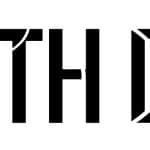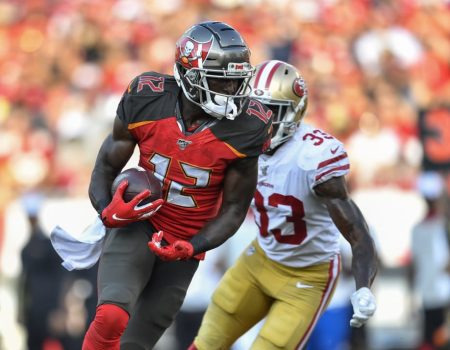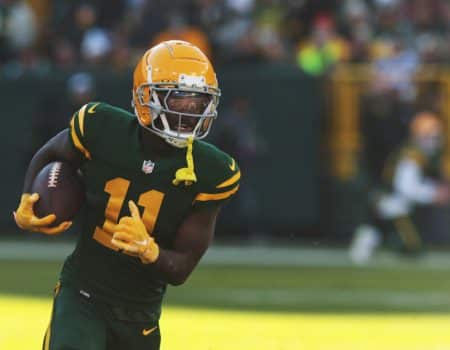This team-based draft strategy aims to identify which Houston Texans are primed for fantasy opportunities in 2019. The series serves as an assessment of each offense and its prospects heading into next season. The stats used for this research are based on a half-PPR scoring format. Redraft rankings are listed for each player in parentheses (not that I like using parentheses).
Houston Texans: No. 16 fantasy offense in 2018 (14th in passing, 15th in rushing)
Houston has all the talent to be a perennial playoff team, but the front office has been thrown into chaos this offseason.
First, general manager Brian Gaine addressed the offensive line by signing Matt Kalil, which inspires very little confidence considering he flamed out of Minnesota and missed all of last season with a knee injury. Then, they narrowly missed out on their draft target Andre Dillard with Philadelphia trading up one spot ahead of Houston to select the left tackle. They settled for Tytus Howard with their next pick and came out of the draft with another lineman in Max Sharping.
Bill O’Brien and the Texans brass were clearly dissatisfied with their general manager’s work, firing him one month after the draft. Houston will now split the GM duties between four members of their front office, which seems like an unnecessarily confusing dynamic. While the Colts and the rest of the AFC continue to improve their rosters throughout the season, Houston will struggle with a dysfunctional power structure.
Deshaun Watson is the biggest victim of the Texans’ poor offseason decision-making. Houston failed to significantly improve their offensive line after surrendering a league-leading 126 QB hits last year.

Jay Glazer reported that Watson suffered a cracked rib and partially collapsed lung that forced him to ride a bus to Jacksonville in week 7. Any injury that precludes a player from air travel is something to be taken seriously. And yet, the Texans line ranks second-worst in the league according to Pro Football Focus. Watson (QB4) can help mitigate his abysmal pass protection by getting rid of the ball quicker, but he also needs time to throw downfield to his dynamic trio of receivers.
The Texans may have the most-talented group of receivers in the league, and it all starts with DeAndre Hopkins. The seventh-year receiver has established himself as a bona fide superstar, showing the body control and contested-catch ability to win any matchup. Hopkins led all receivers with a 34.6% target share last year, which is a product of his talent, the injuries elsewhere on the roster, and the low passing volume in the Texans offense. He also led the league in targets inside the 10-yard line. Hopkins (WR2) remains an elite fantasy wide receiver with an established role in his offense.
Will Fuller has been on an absolute tear since 2017, which is an unfortunate turn of phrase given his injury history. Fuller has missed 17 games in his three-year career to a litany of injuries, including a torn ACL that ended his 2018 season in week 8. He’s fully healthy at Texans training camp now, which is a good sign considering he’s only nine months removed from major knee surgery.
If he can remain healthy, Fuller might just be unstoppable in the Texans offense this year. In the eleven games he’s played with Watson, Fuller has averaged 72 yards and a touchdown with only 6.1 targets per game. That’s insane! Fuller (WR31) is the ultimate boom-or-bust flex player who can win weeks with multi-touchdown performances or go down with an injury at any time.
Keke Coutee is the best value in the Texans offense at this present moment. You want rookie wide receivers to flash play-making ability and Coutee did so when given the opportunity last year. In the three games he received more than five targets, Coutee averaged 7.3 catches, 79 receiving yards and 0.3 touchdowns. Slot receivers are often volume-dependent, so Will Fuller’s return to the lineup would seem to hurt his value. However, Fuller has never been a high-volume receiver and his deep-play ability can create space for Coutee to rack up yards after the catch. Coutee (WR37) is a great value in fantasy drafts, especially in PPR-scoring formats.
As for the running game, Lamar Miller has had an uninspired run as the team’s starting running back. In the last three seasons, he’s finished as the RB16, RB13 and RB23, respectively. Miller won’t produce many standout performances, but he provides reliable production at a relatively thin position. All starting running backs have intrinsic value, even the unremarkable ones. Miller (RB30) will also be a free agent after the season, making him more expendable to the Texans coaching staff. The harsh reality of professional sports is that Miller’s long-term durability is less of a concern for Houston, because he isn’t under contract past this season.






No Comment! Be the first one.